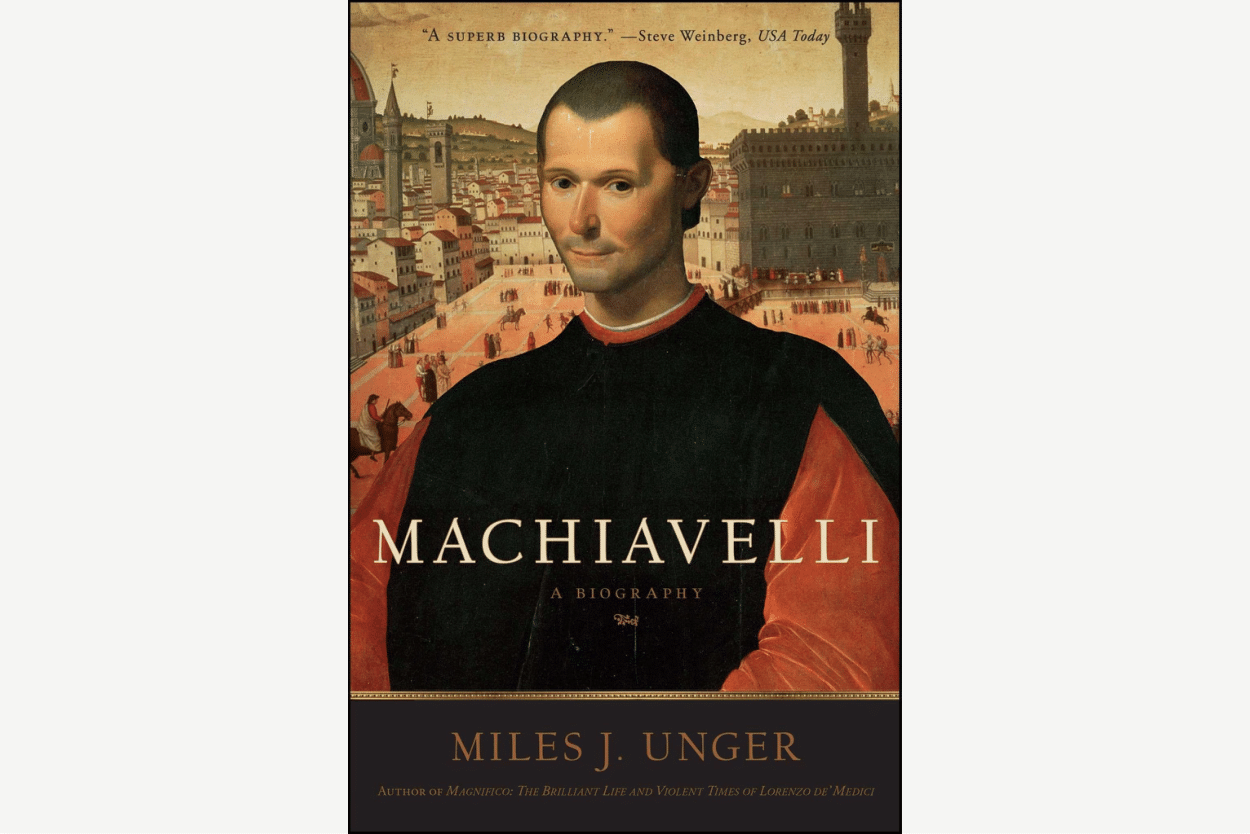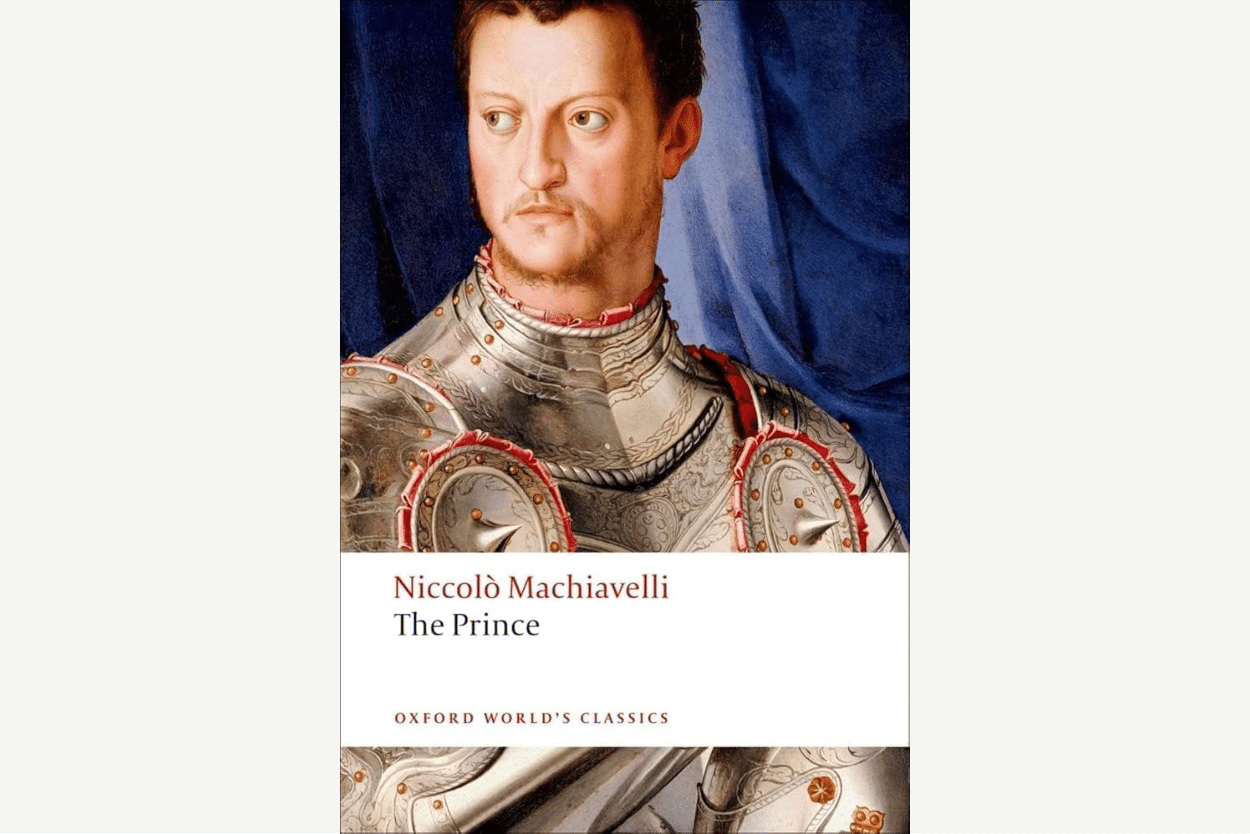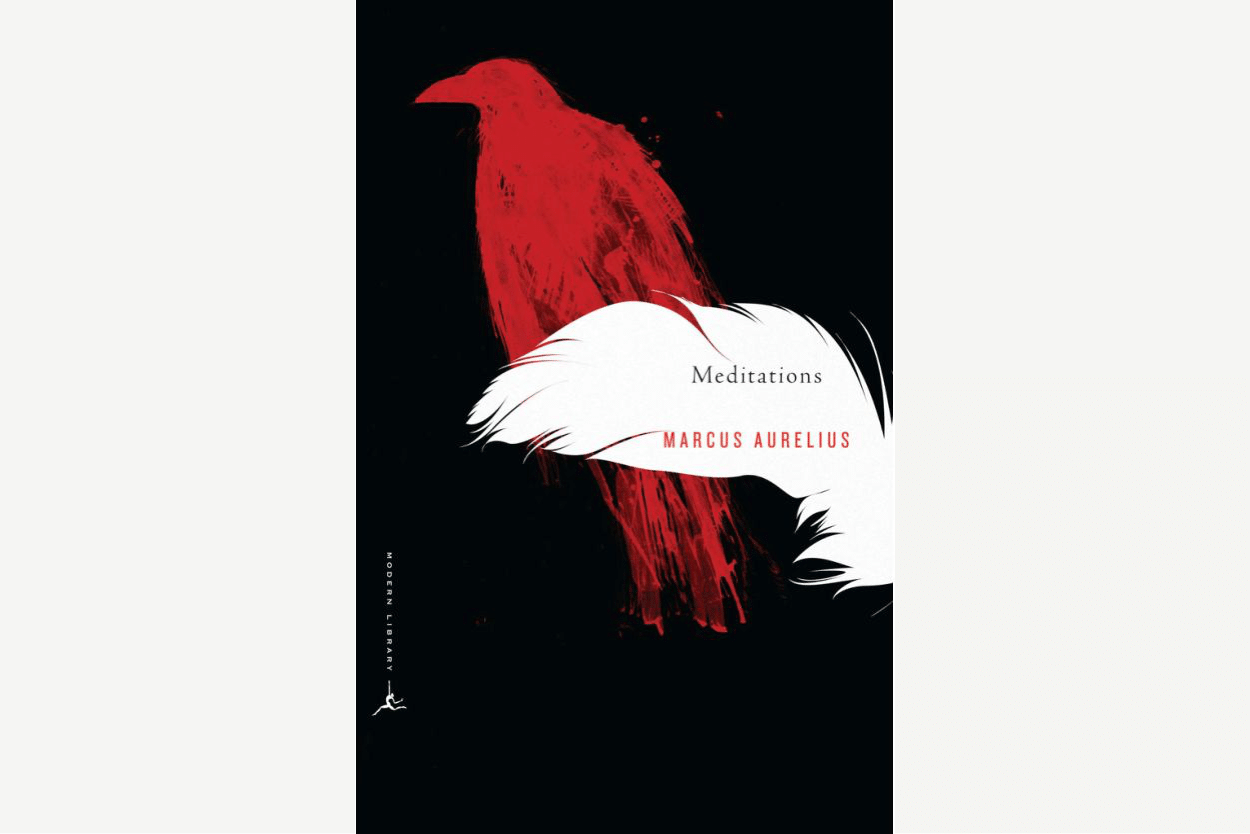Book Review: "Machiavelli: A Biography"

Author: Miles Unger
Published: 2011
Genre: Biography
Page Count: 415
Personal Taste: ⭐ 5 / 5
Craft: 📐 7 / 10
Bandwidth: 🔵 4 / 10
✅ Recommended to: ENTPs; history buffs; political scientists
❌ Skip if: Uninterested in Renaissance history
The Book
Context: Born in Florence during the High Renaissance, Niccolò Machiavelli (1469–1527) lived through both Italy’s cultural rebirth and its descent into violent ruin. As a Florentine statesman, he witnessed firsthand the insatiable ambitions of political upstarts, pervasive papal corruption, and a constantly shifting web of geopolitics. These experiences would later culminate in several works—most infamously, The Prince (1532). Though Machiavelli and The Prince have become synonymous with intrigue and tyranny, this biography aims to challenge the inaccurate, two-dimensional villainy long attached to his name.
Contents. Machiavelli: A Biography follows the transformation of the Florentine's life from statesman to philosopher over the 15 chapters—each a distinct period of his life. The book is a historical biography, but the writing adopts an almost narrative approach where, rather than a dry recounting of facts, the reader observes Machiavelli from an intimate, third-person perspective. To accomplish this, the book draws heavily on Machiavelli’s prolific correspondence to animate his personality. The reader is aided with a few helpful maps and a character index at the front of the book.
Multiple Truths: "Should I Read This?"
On one hand,
- Sentences can be unpredictably long-winded and clunky, disrupting the flow of reading.
- The reader’s lack of familiarity with Renaissance vocabulary can also slow reading down.
- Footnotes are slightly distracting—and, if skipped, leave the reader without key information for full understanding.
- Some chapters move at different rates than others, which notably change the pacing.
But, on the other hand,
- The author is massively successful in dismantling Machiavelli's "villian" defamation has been discredited with.
- The writing is so captivating that it reads as a story before a biography.
- Machiavelli and other notable figures are brought to life with vivid imagery and well-placed direct quotes, piquing the imagination.
- Quotes aren't filler—they actively narrate scene.
Judgment
Machiavelli: A Biography demonstrates how good writing can animate the history genre—or how poor writing can make it torturous. Miles Unger overwhelmingly succeeds in the difficult task of rebranding the unfairly villainized Machiavelli.
Outstanding historical writing
Order "Machiavelli: A Biography"
As an Amazon Associate I earn from qualifying purchases
Get Book Here




